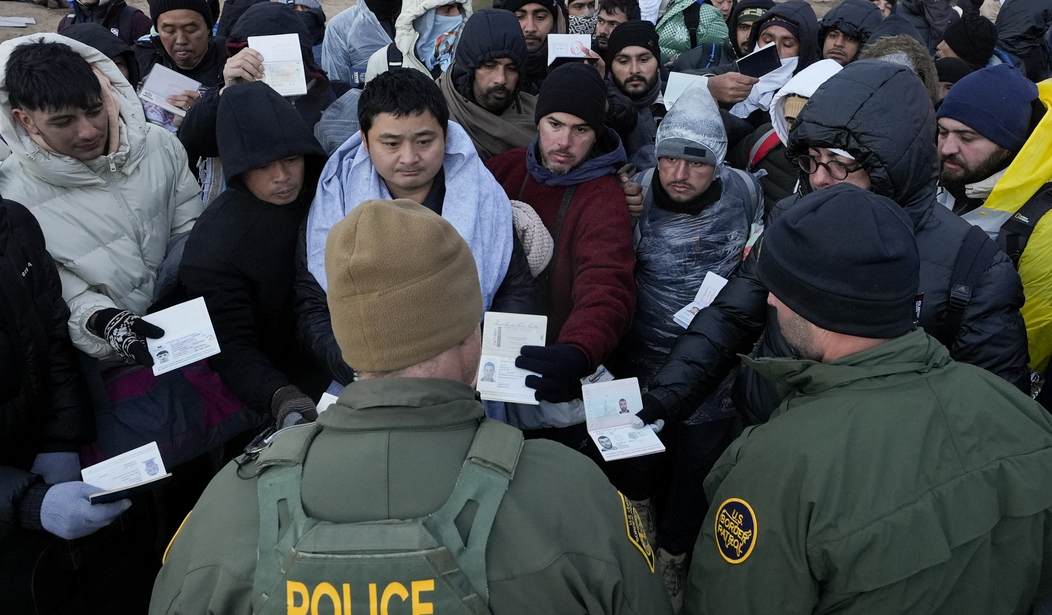The hard truth about America's immigration courts isn't just that they're overwhelmed – they're creating a catastrophic breakdown of our entire immigration system. While politicians endlessly debate border policies, they're ignoring a fundamental reality: without functioning courts, every other immigration policy is meaningless.
The numbers expose the magnitude of this crisis. Just 682 immigration judges are drowning under an impossible backlog of over 3 million pending cases. That's not a statistic – it's proof of complete systemic failure. Each judge faces an average of 4,500 cases, a workload that renders meaningful judicial review impossible.
This isn't about politics or policy preferences. It's about basic math. Immigration judges typically resolve 700-1,000 cases per year when operating at full capacity. Even if these judges worked non-stop, putting in 40-hour weeks with no vacations, it would take between 6 and 13 years to clear their current caseloads. And that assumes no new cases are added – an obviously impossible assumption given current migration trends.
The practical consequences are staggering. Initial "Notice to Appear" hearings – the basic first step in any immigration case – are now being scheduled 1-2 years into the future. For people entering the system today, their proceedings won't even begin until 2025 or 2026. From there, final decisions might take another 5-8 years. This isn't a judicial system – it's bureaucratic theater.
The immigration court crisis represents more than just a logistical challenge – it's become a fundamental threat to America's legal principles and national security interests. When justice is delayed by years or even decades, it undermines both the rule of law and public safety. Those with valid claims to remain in the United States are left in devastating uncertainty, while those who should be removed face no meaningful consequences. This creates an incentive structure where the dysfunction of the system itself becomes a pull factor for irregular migration, as potential migrants calculate that entering the system, regardless of their case's merit, guarantees years of de facto stay in the United States.
Recommended
The global implications of this systemic failure extend far beyond our borders. America's inability to process immigration cases in a timely manner sends troubling signals to both allies and adversaries about our institutional capacity to manage sovereign borders. Partner nations working to manage migration flows lose faith in U.S. commitments when they see cases languishing for years. Meanwhile, transnational criminal organizations exploit the court backlog, knowing that even if their members are apprehended, they're likely to be released into the country for years while awaiting hearings. The breakdown of timely adjudication doesn't just damage our immigration system – it undermines our credibility as a nation of laws and our ability to engage in meaningful international cooperation on migration management.
The incoming Trump administration has an opportunity to tackle this crisis head-on, but they need to start now. The good news? Unlike many immigration-related policies, there's no congressional cap on the number of immigration judges. The obstacles are funding and finding qualified candidates – both problems that determined leadership can solve.
The challenge is massive but clear. We need new judges immediately. If the incoming administration implements expanded enforcement initiatives, we could need up to 425 new judges. But in May 2023, the government appointed just 19 new immigration judges. That's like trying to drain a flood with a coffee cup.
Here's a reality check that politicians ignore: not every immigration case requires a judge. With any pending mass enforcement initiatives, we need to be strategic about court resources. Many cases, especially those involving recent border crossers who don't claim fear of return, can be handled through expedited removal procedures. The law already provides mechanisms for swift processing without clogging up immigration courts. But for cases that legally require judicial review - like asylum claims or contested removals - we need enough judges to handle the volume. If the next administration implements expanded enforcement operations, they'll need to double or triple the current judicial workforce just to handle mandatory court appearances. Pretending we can remove millions of people without a corresponding expansion of the courts is pure fantasy.
The consequences of inaction are undeniable. When initial hearings take years and final decisions take nearly a decade, we've abandoned any pretense of having an actual immigration court system. Valid claims languish while invalid ones effectively get rewarded through sheer bureaucratic gridlock.
This is the rare immigration issue where both sides should agree. If you want stricter immigration enforcement, you need judges to apply the law. If you want fairer immigration policies, you need judges to evaluate claims properly. Either way, a court system this broken serves no one's interests.
The choice is clear: we can start hiring qualified immigration judges now, or we can watch our immigration system continue its total collapse. Every day we delay is another day our immigration laws exist only on paper, rendered meaningless by courts too overwhelmed to function.
The time for action doesn't have to wait until 2025. The Trump team can begin sending clear signals now: the era of accepting judicial gridlock is ending. Congress must allocate resources for judges, support staff, and facilities. The message must be clear: a functioning court system isn't optional – it's essential to any coherent immigration policy.
The cost of continuing down our current path is clear: more chaos, more gridlock, and the complete breakdown of orderly immigration proceedings. We don't need to wait for another election to begin fixing this crisis.

























Join the conversation as a VIP Member